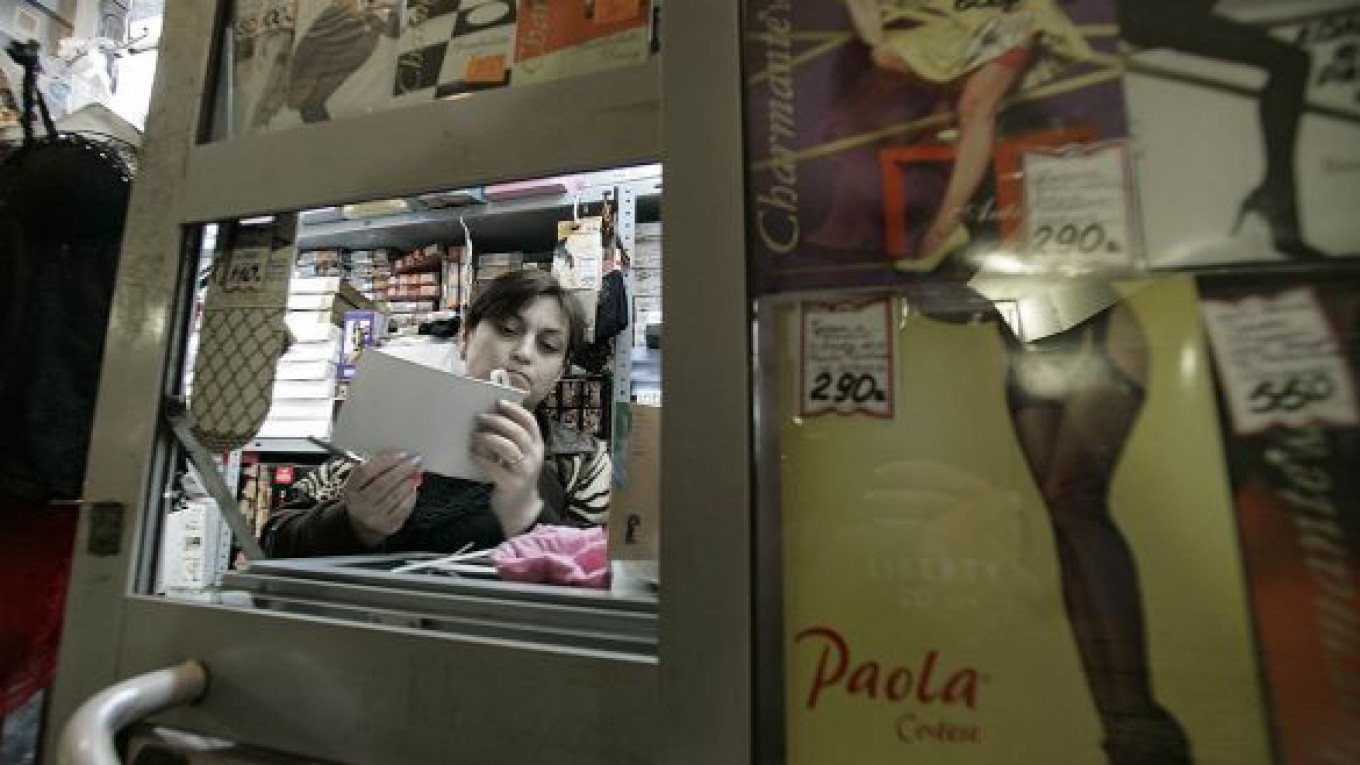Mistrust of authorities is still a key barrier prohibiting policy makers from gathering information on Russia's business realities.
In collecting data for its first census on small and medium-sized businesses, the State Statistics Service was frustrated by discarded or incomplete questionnaires and obscenities written instead of answers, said Alexander Surinov, the head of the service.
The resistance to the census was partially due to the sentiment that the government will use the statistics to harass business owners, he said.
It was particularly difficult to get information from Moscow and St. Petersburg businesses. The residents of large cities tend to be the most cautious about giving out information, Surinov said.
He stressed that information given to the State Statistics Service is kept confidential and that there are mechanisms to prevent even indirect identification of respondents.
Business people should see the census as a way to challenge authorities rather than as a means of state snooping, Surinov said.
"Use this information," he said. "Use it in your fight with those who, in your opinion, are not making the right political decisions about you. Take these numbers and prove your innocence!"
The State Statistics Service also noticed that businesses expressed frustration at the amount of documentation they are asked to fill out by various state organs.
"I don't want entrepreneurs to have the impression that we are trying to torture them with questionnaires," Surinov said. "We believe that these questionnaires should be reduced. After all, business must be engaged in doing business and not compiling statistical reports."
The service is now looking into switching to electronic questionnaires and cutting out questions that can be answered by taking data from other government agencies.
The State Statistics Service received 4.57 million responses after sending out 6.3 million questionnaires and dispatched agents to track down unresponsive business owners. The final response rate was better than the service expected, Surinov said.
The survey, the first of its kind, was conducted in 2011 and gathered data on small and medium-sized businesses registered as of 2010.
Preliminary results were published on the service's website in April and showed that 22 percent of the workforce is employed by small or medium enterprises.
According to the findings, those employees contributed 830.9 billion rubles ($25 billion) to the country's GDP.
A Message from The Moscow Times:
Dear readers,
We are facing unprecedented challenges. Russia's Prosecutor General's Office has designated The Moscow Times as an "undesirable" organization, criminalizing our work and putting our staff at risk of prosecution. This follows our earlier unjust labeling as a "foreign agent."
These actions are direct attempts to silence independent journalism in Russia. The authorities claim our work "discredits the decisions of the Russian leadership." We see things differently: we strive to provide accurate, unbiased reporting on Russia.
We, the journalists of The Moscow Times, refuse to be silenced. But to continue our work, we need your help.
Your support, no matter how small, makes a world of difference. If you can, please support us monthly starting from just $2. It's quick to set up, and every contribution makes a significant impact.
By supporting The Moscow Times, you're defending open, independent journalism in the face of repression. Thank you for standing with us.
Remind me later.






